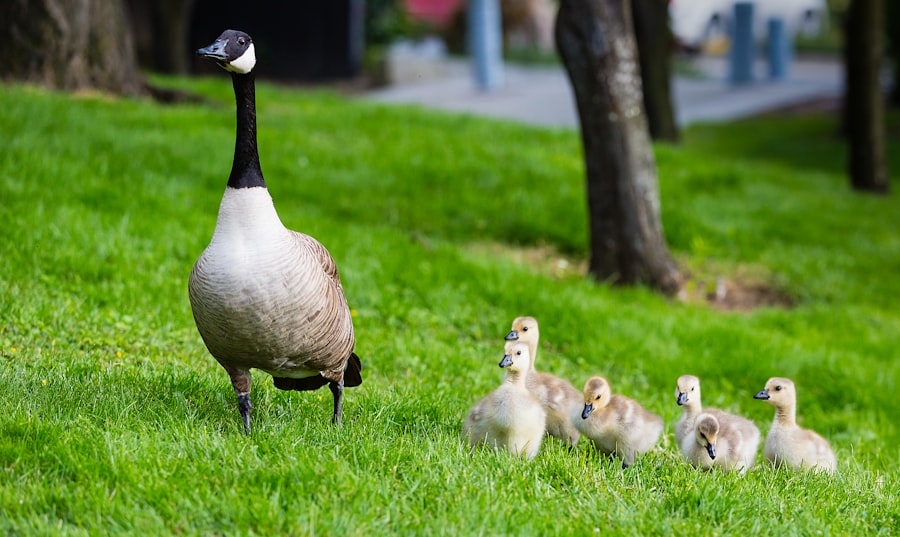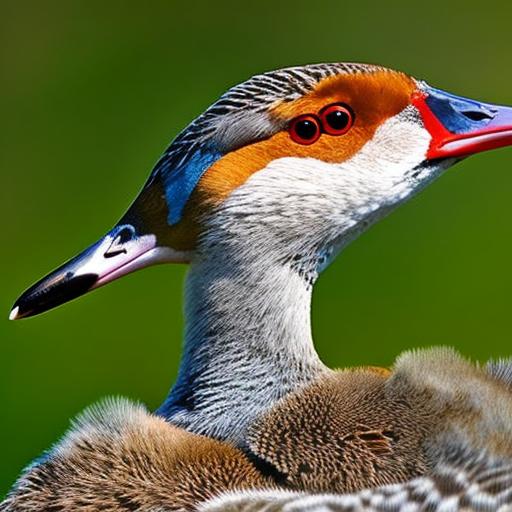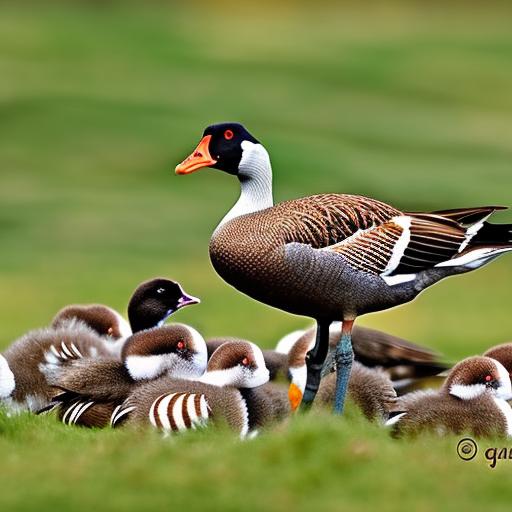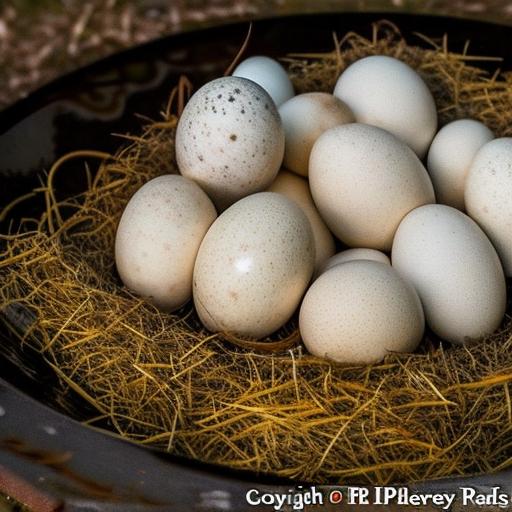Geese have been domesticated for thousands of years, with evidence of their presence dating back to ancient Egypt and Rome. These birds were initially kept for their meat, eggs, and feathers, but over time, they have also become popular as pets. Geese make great pets for a variety of reasons. They are intelligent, social animals that can form strong bonds with their owners. They are also known for their loyalty and protective nature, making them excellent guard animals. Additionally, geese are relatively low-maintenance pets and can adapt well to different environments.
Key Takeaways
- There are many different breeds of pet geese, each with their own unique characteristics and traits.
- Domesticated geese are typically more docile and easier to care for than wild geese, which can be more aggressive and difficult to handle.
- Popular pet goose breeds include Toulouse, Embden, and Chinese geese, among others.
- Different breeds of geese have different physical and behavioral characteristics, such as size, color, and temperament.
- When choosing a pet goose breed, it’s important to consider factors such as space, climate, and your own level of experience with animal care.
Domesticated Geese vs. Wild Geese
There are significant differences in behavior and temperament between domesticated geese and their wild counterparts. Domesticated geese have been selectively bred for centuries to exhibit certain traits that make them more suitable as pets. They tend to be more docile and friendly towards humans, making them easier to handle and interact with. Wild geese, on the other hand, are more wary and skittish around humans.
One advantage of keeping wild geese as pets is that they retain their natural instincts and behaviors. They are excellent at foraging for food and can help control pests in the garden. However, they may be more challenging to train and handle compared to domesticated geese.
Popular Pet Geese Breeds
There are several popular breeds of pet geese that are commonly kept as pets:
1. Toulouse: The Toulouse goose is one of the largest domesticated goose breeds. They have a calm and friendly temperament, making them great companions. Toulouse geese are known for their gray plumage and large size.
2. Embden: The Embden goose is another popular breed known for its white plumage and large size. They are friendly and sociable birds that can form strong bonds with their owners.
3. African: African geese are smaller in size compared to Toulouse and Embden geese. They have a distinctive knob on their beak and are known for their loud honking. African geese are intelligent and can be trained easily.
4. Chinese: Chinese geese are medium-sized birds with a slender build. They have a distinctive knob on their forehead and are known for their graceful appearance. Chinese geese are friendly and make excellent pets.
5. Sebastopol: Sebastopol geese are known for their unique curly feathers, which give them a distinctive appearance. They are friendly and sociable birds that can be easily trained.
Characteristics of Different Pet Geese Breeds
Each pet goose breed has its own unique characteristics in terms of size, feather color, texture, and personality traits.
1. Size and weight: Toulouse and Embden geese are the largest breeds, with males weighing up to 30 pounds or more. African geese are smaller, with males weighing around 20 pounds. Chinese geese are medium-sized, with males weighing around 12-14 pounds. Sebastopol geese are also medium-sized, with males weighing around 10-12 pounds.
2. Feather color and texture: Toulouse and Embden geese have gray or white plumage, respectively. African geese have a mix of gray and white feathers. Chinese geese can have a variety of colors, including white, gray, or brown. Sebastopol geese have curly feathers that can be white or gray.
3. Personality traits: Toulouse and Embden geese are known for their calm and friendly temperament. African geese are intelligent and can be trained easily. Chinese geese are friendly and sociable birds that enjoy interacting with their owners. Sebastopol geese are friendly and sociable but may require extra care due to their curly feathers.
Choosing the Right Pet Goose Breed for Your Home
When choosing a pet goose breed, there are several factors to consider, including space and climate requirements, as well as matching personality traits with your lifestyle.
1. Space requirements: Geese need ample space to roam and graze. Toulouse and Embden geese require more space due to their larger size. African, Chinese, and Sebastopol geese can adapt well to smaller spaces but still need room to move around.
2. Climate considerations: Some goose breeds are better suited for colder climates, while others can tolerate warmer temperatures. Toulouse and Embden geese have thick plumage that provides insulation in colder climates. African, Chinese, and Sebastopol geese can adapt well to a variety of climates.
3. Matching personality traits: Consider your own lifestyle and preferences when choosing a pet goose breed. If you want a calm and friendly bird, Toulouse or Embden geese may be the best choice. If you prefer a smaller bird that is intelligent and trainable, African or Chinese geese may be a better fit.
Caring for Pet Geese: Feeding, Housing, and Health

Proper care is essential for keeping pet geese healthy and happy. Here are some guidelines for feeding, housing, and maintaining the health of your pet geese:
1. Recommended diet and feeding schedule: Geese are herbivores and should be fed a balanced diet consisting of grass, grains, and vegetables. They should also have access to fresh water at all times. Feeding schedules may vary depending on the age and activity level of the geese.
2. Housing requirements and bedding options: Geese need a secure and spacious enclosure to protect them from predators. The enclosure should have access to fresh water for swimming and grazing areas for foraging. Bedding options include straw or wood shavings.
3. Common health issues and how to prevent them: Geese are generally hardy birds but can be susceptible to certain health issues, including respiratory infections and parasites. Regular veterinary check-ups, proper nutrition, and a clean living environment can help prevent these issues. Vaccinations may also be recommended.
Training Pet Geese: Tips and Tricks
Training pet geese can be a rewarding experience and can help establish a bond between you and your bird. Here are some tips and tricks for training your pet geese:
1. Basic obedience commands: Start with basic commands such as “come,” “stay,” and “sit.” Use positive reinforcement techniques such as treats and praise to reward desired behaviors.
2. Litter box training: Geese can be trained to use a designated area for their droppings. Place a litter box or tray filled with straw or wood shavings in their enclosure and encourage them to use it by placing droppings in the box.
3. Socialization with other animals: Introduce your geese to other animals gradually and under supervision. This can help them become more comfortable around other pets and livestock.
Pros and Cons of Keeping Pet Geese
Keeping pet geese has its benefits, but it also comes with challenges and potential drawbacks. Here are some pros and cons to consider:
1. Benefits of owning geese as pets: Geese are intelligent, social animals that can form strong bonds with their owners. They are also excellent guard animals and can help control pests in the garden. Geese are relatively low-maintenance pets and can adapt well to different environments.
2. Challenges and potential drawbacks: Geese can be noisy, especially during mating season or when they feel threatened. They also require ample space to roam and graze, which may not be suitable for all living situations. Geese can be messy, and their droppings may require regular cleaning.
The Role of Geese in Sustainable Living
Geese can play a valuable role in sustainable living practices such as permaculture and homesteading. Here are some benefits of geese in these contexts:
1. Benefits of geese in permaculture: Geese are excellent foragers and can help control weeds and pests in the garden. They can also contribute to soil fertility through their droppings, which are rich in nutrients.
2. Benefits of geese in homesteading: Geese can provide a source of meat, eggs, and feathers for self-sufficiency. They can also serve as guard animals, alerting you to potential threats or intruders.
The Joys of Owning Pet Geese
Owning pet geese can be a unique and rewarding experience. These intelligent and social birds can form strong bonds with their owners and provide companionship. They are also excellent guard animals and can contribute to sustainable living practices. However, it is important to consider the specific needs and requirements of different goose breeds before bringing them into your home. With proper care and attention, pet geese can bring joy and fulfillment to your life.
If you’re interested in learning more about pet geese breeds, you might also find this article on the mating season for turkeys fascinating. Understanding the breeding patterns and behaviors of turkeys can provide valuable insights into the breeding habits of geese as well. Check out the article here to discover more about turkey mating seasons and how it relates to pet geese breeds. And while you’re at it, don’t forget to explore other informative articles on topics like maintaining a garden chicken coop here and finding the perfect heater for a chicken coop here. Happy reading!
FAQs
What are some common breeds of pet geese?
Some common breeds of pet geese include Toulouse, Embden, Chinese, African, and Sebastopol geese.
What is the average lifespan of a pet goose?
The average lifespan of a pet goose is around 10-15 years, but they can live up to 25 years with proper care.
What kind of environment do pet geese need?
Pet geese need access to water for swimming and drinking, as well as a grassy area for grazing. They also need shelter from the elements and predators.
What do pet geese eat?
Pet geese primarily eat grass, but they also enjoy grains, fruits, and vegetables. It’s important to provide them with a balanced diet to ensure their health.
Are pet geese good pets?
Pet geese can make great pets for those who have the space and resources to care for them properly. They are social animals and can form strong bonds with their owners. However, they can also be noisy and messy, so they may not be suitable for everyone.
Meet Walter, the feathered-friend fanatic of Florida! Nestled in the sunshine state, Walter struts through life with his feathered companions, clucking his way to happiness. With a coop that’s fancier than a five-star hotel, he’s the Don Juan of the chicken world. When he’s not teaching his hens to do the cha-cha, you’ll find him in a heated debate with his prized rooster, Sir Clucks-a-Lot. Walter’s poultry passion is no yolk; he’s the sunny-side-up guy you never knew you needed in your flock of friends!







